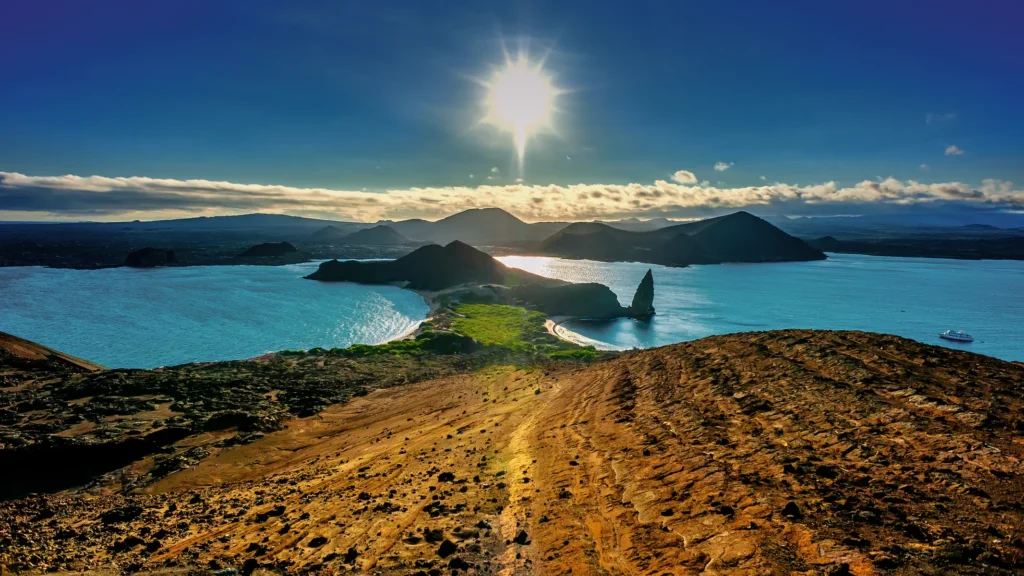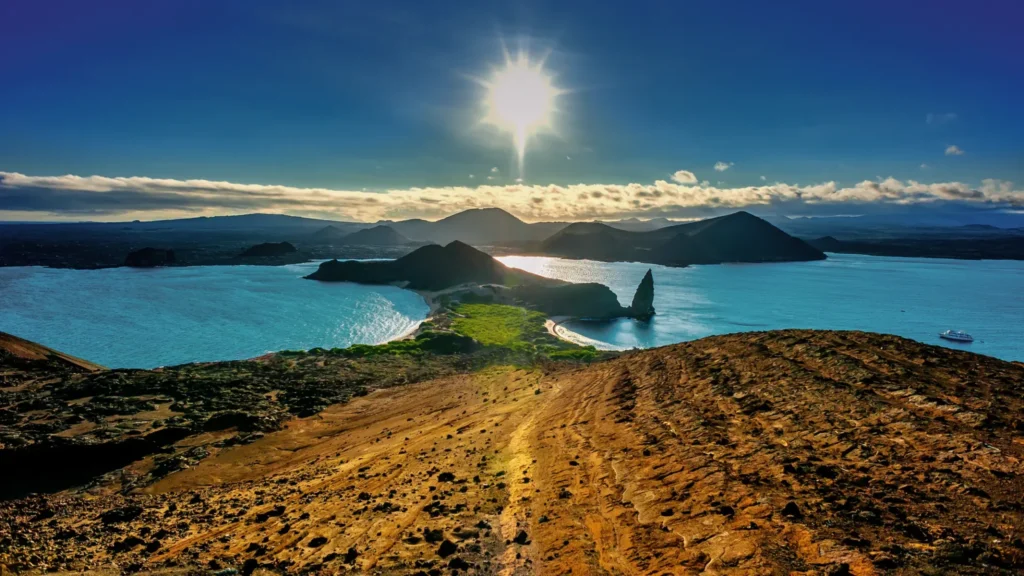[ad_1]

Four Seasons and Ritz-Carlton have put sizable investments into their yacht businesses, serving luxury consumers at scale. And business is booming.
But there is also a smaller, interesting b-side to this market: an emerging segment of adventurous luxury travelers. A brand that caters to them is Aqua Expeditions, which offers a more boutique experience and flexible access to interesting, far-flung atolls and other remote places.
The company, led by CEO Francesco Galli Zugaro, creates unique small-ship expeditions. It’s an interesting sell for the luxury traveler who has checked many global destinations off their list and is looking for access to hard-to-reach regions.
Guests can dive with sharks and manta rays in the Galapagos, swim with piranhas in the Amazon, see Komodo Dragons in East Indonesia, or bike through picturesque Mekong rice fields. The variety is the draw.
A Boutique Approach to Water Expeditions
The company stays intentionally small, with ships accommodating fewer than 40 passengers. This allows for a level of personalization that simply isn’t possible on larger vessels. “Our guests are affluent explorers,” says Zugaro. “They’re looking for adventure without sacrificing comfort. The goal is to create those rare moments…hiking a volcanic crater or snorkeling with [stingless] jellyfish.”
The type of traveler drawn to Aqua has already tried other hotel experiences, gone on multiple safaris, and gradually evolved their taste for more adventure and depth. They can stay and go wherever they want but realize that the most memorable experiences come from the actual things you do: excursions led by exceptional guides, anchored in unique locales.
Zugaro has hand-crafted the ports of call. “Itinerary building and scouting destinations is at the core of my sense of exploration and how to appeal to our guests’ spirit of adventure,” he says.
Reaching What Others Can’t
Aqua’s core differentiator is mobility and access. Their smaller ships can navigate narrow rivers, shallow waterways, and isolated coastlines that are inaccessible to larger vessels. “Our river ships operate in as little as two meters of water, which means we can run year-round and access places others can’t,” Zugaro explains. “This isn’t about transatlantic crossings — it’s about going deeper into destinations.”
As popular tourism destinations like Bali and Venice become saturated with tourists, some of the most interesting travel today requires one or two extra small prop-plane flights. Aqua pushes this idea further, using water as an advantage by offering guests access to pristine, untouched areas (and the priceless conversational capital of having been somewhere extraordinary that others haven’t).
More than Just Scuba
There is a mature, luxury liveaboard market targeted squarely at scuba divers, but Aqua’s appeal lies in its ability to cater to diverse traveler preferences. Ships are designed as “floating base camps,” allowing guests to explore during the day and return to comfort in the evening.
“Some will dive three times a day, while others explore on land,” Zugaro explains. “The key is providing options.”
The intimacy of Aqua’s small-ship model attracts a self-selecting group of like-minded travelers. “Egos are checked at the gangway,” Zugaro notes. “With only 40 passengers, everyone knows each other by the end of the first day.”
Staff as a Differentiator
Unlike many larger yacht operators who rotate seasonal workers on-demand, Aqua employs a full-time, locally sourced team. This ensures consistency and creates a deeper connection between guests and destinations.
“When you’re in Vietnam, one of our guides might be from the floating market you’re exploring,” says Zugaro. “That’s the kind of authenticity guests notice.”
This local knowledge extends beyond guiding to sourcing of food, other procurement, and relationships that are critical both on land and at sea. The model highlights the importance of investing in local expertise to enhance the brand’s credibility and guest satisfaction.
Expanding to Africa
Aqua is extending its footprint to East Africa, introducing an explorer yacht to the Indian Ocean, which will offer guests the opportunity to blend land and sea, combining safari experiences from the likes of Singita and AndBeyond with ocean exploration. “How cool will it be to go from the savannas of Tanzania to Aldabra Atoll, one of the most remote and pristine ecosystems in the world?” Zugaro asks.
The company is also active in oceanic conservation. In the Galapagos, Aqua partnered with the Charles Darwin Foundation and Galapagos Conservation Trust, sponsoring a Shark Ecology and Conservation Program to study endemic shark populations.
Everything Communicates
It is the sum of these elements that creates an interesting value proposition for the luxury traveler who has been there, done that. And the founder-led approach adds to the appeal. Zugaro is very hands-on and recounts that for every new boat they launch, he sources vintage custom maps and scours the earth for interesting decorations to create that hand-curated feel for the guests.
With nearly 40,000 past guests, Aqua has found product-market fit with an interesting and growing segment of consumers: those who have transcended traditional luxury, understanding that the most interesting things sit far outside palace hotels. They’re in untouched corners that require effort and an explorer’s mindset to find.
Zugaro says that core to the loyalty and repeat business is that guests feel everything has been personally curated, “just as I was welcoming them into our home.” This is the secret sauce that larger brands cannot manufacture and it is finding wider resonance with certain sets of travelers as they search the market, and the world, for purity and intent behind the brands they buy.
[ad_2]
Source link

